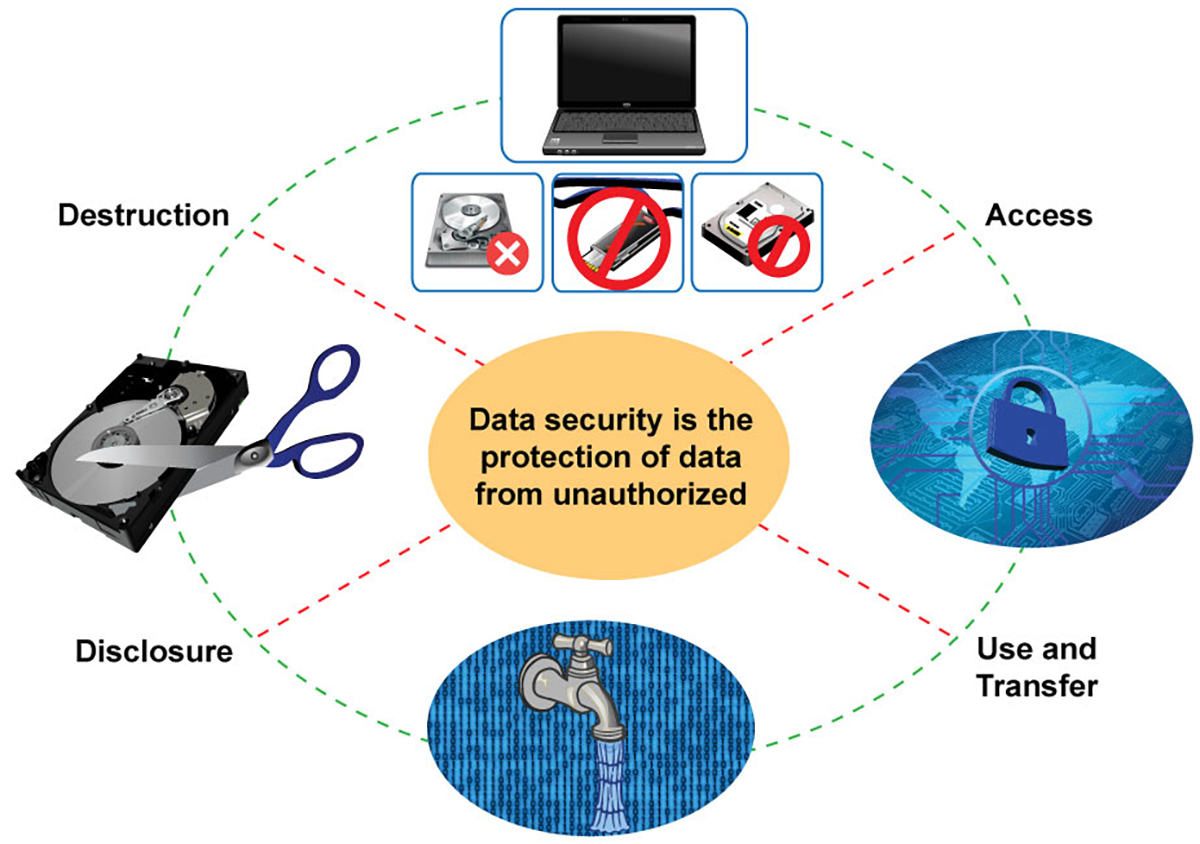How Robust Data Destruction Enhances Your Overall Cyber Security Procedures
How Robust Data Destruction Enhances Your Overall Cyber Security Procedures
Blog Article
The Necessary Nature of Information Destruction in Upholding Computer Security Solutions and Protecting Against Unauthorized Gain Access To
In an age where data breaches and identity burglary are significantly widespread, the value of reliable information destruction can not be overemphasized. Numerous approaches, from information wiping to physical damage, offer as crucial safeguards against unapproved accessibility.
Relevance of Data Damage
In a significantly digital world, the value of data damage can not be overstated. As companies generate vast amounts of sensitive info, the possible effects of failing to properly dispose and handle of that information become progressively serious. Data breaches, identity theft, and corporate espionage pose substantial risks, highlighting the requirement of reliable data devastation practices.

Furthermore, as technology evolves, so too do the methods by which malicious stars seek to manipulate delicate details. Organizations should remain proactive and cautious in their data destruction methods to secure against these developing threats. By focusing on data damage, firms not only protect their possessions yet likewise foster depend on among customers and stakeholders, demonstrating a dedication to accountable data management and protection techniques.
Techniques of Effective Data Devastation
To ensure the irreversible and total devastation of delicate data, organizations can use a selection of effective techniques customized to their particular demands. One of the most typical approaches is data wiping, which entails utilizing specialized software application to overwrite existing information multiple times, making healing essentially difficult. This is specifically beneficial for hard drives and solid-state drives, where conventional deletion methods are poor.
An additional effective strategy is degaussing, which makes use of strong magnetic fields to disrupt the magnetic domains on storage space media, making the information irretrievable. This approach is particularly matched for magnetic storage space gadgets, such as tape drives and hard drives.
Physical devastation is additionally a viable option, involving the shredding, crushing, or incineration of storage devices. This method assurances that information can not be recuperated, making it perfect for organizations handling extremely sensitive details.

Compliance With Data Security Rules
Organizations must not just focus on reliable information destruction methods yet likewise make certain compliance with information security guidelines that control just how delicate info is handled and taken care of. Sticking to these laws is important for securing personal data and maintaining customer trust. Regulations such as the General Data Defense Law (GDPR) in the European Union and the Medical Insurance Transportability and Accountability Act (HIPAA) in the USA enforce rigorous guidelines on data administration, that include needs for the protected disposal of delicate details.
To achieve compliance, organizations need to implement thorough information destruction policies that align with these legal structures. This includes recognizing data that requires damage, developing methods for secure methodsâEUR" such you could look here as shredding physical media or utilizing software that fulfills industry requirements for information wipingâEUR" and preserving detailed records of devastation activities. Normal audits must be conducted to ensure adherence to these plans and to determine any type of potential areas for enhancement.
Failing to conform with information protection laws helpful resources can lead to considerable lawful ramifications, consisting of significant fines and damages to an organization's reputation. Consequently, integrating conformity into information damage methods is not just a lawful responsibility but likewise a vital element of a durable details safety approach.
Effects of Poor Information Handling
Poor information handling can bring about severe repercussions that expand past instant functional problems. Organizations may encounter substantial economic losses as a result of information breaches, which often result in expensive removal efforts, legal fees, and governing penalties. These financial implications can prevent and strain resources growth, ultimately affecting an organization's bottom line.
Furthermore, poor information handling can significantly damage a company's online reputation. Companions, stakeholders, and customers might shed rely on an entity that falls short to secure delicate details, causing lowered consumer loyalty and possible loss of company possibilities. This erosion of trust fund can take years to reconstruct, if it can be recovered in any way.
Additionally, companies could deal with lawful ramifications emerging from non-compliance with data defense policies. Such violations might lead to fines and investigations, intensifying the financial problem and additional tainting the company's image.
In the realm of cybersecurity, inadequate data administration techniques can create susceptabilities that make systems much more prone to unapproved access and cyberattacks. Ultimately, these repercussions highlight the vital importance of executing durable information dealing with treatments to safeguard sensitive info and keep business honesty.
Ideal Practices for Secure Data Disposal


Firstly, data ought to be classified according to its level of sensitivity. Sensitive info calls for extra rigorous disposal techniques, such as shredding physical papers and making use of sophisticated software program for electronic information cleaning. Using useful link licensed data destruction solutions ensures conformity with market guidelines and criteria.
Second of all, companies should implement a data disposal policy that mandates regular audits. This policy ought to describe the procedures for information retention and destruction, making sure that out-of-date data is dealt with promptly and safely. Training workers on these protocols is vital to promoting a society of protection recognition.
Last but not least, keeping detailed documents of disposed information boosts liability and gives a clear audit route. This documents needs to consist of the kind of data destroyed, the method used, and the day of disposal.
Conclusion
Taking on durable methods such as information cleaning, degaussing, and physical destruction, together with conformity with regulations like GDPR and HIPAA, is essential for guarding sensitive info. Disregarding proper data disposal techniques can lead to severe effects, including information violations and legal effects.
In a period where information violations and identification burglary are increasingly prevalent, the relevance of reliable information destruction can not be overstated. data destruction. Data breaches, identification burglary, and company espionage pose considerable risks, emphasizing the requirement of reliable information devastation techniques
Conformity with laws such as GDPR and HIPAA requireds that companies apply stringent data protection measures, including the secure destruction of data at the end of its lifecycle.
By prioritizing information devastation, companies not only secure their properties yet also foster trust fund among clients and stakeholders, showing a dedication to liable information administration and protection techniques.
Organizations need to not only focus on reliable information damage techniques yet additionally make certain conformity with information security guidelines that control just how sensitive information is dealt with and disposed of.
Report this page